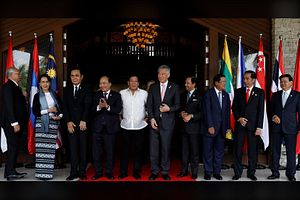ASEAN prides itself on being one of the most forward-looking regional organizations in the world. Part of its success has stemmed from its bold initiatives — Vision 2020 and the Bali Concord, for example. A strategic perspective helped ASEAN adopt an external outlook while at the same time not losing sight of its commitment to its over 600 million constituents. Its formal declaration of an ASEAN Community in 2015 served less as an accomplishment of its vision and more of a further reinforcement of its commitments.
The dynamism of ASEAN’s regional environment presents a set of challenges that puts stress on its institutional infrastructure as well as norms of decision-making. As enduring structures that regulate behavior and stabilize expectations, institutions are vital for the pursuit of mutual interests and shared goals. Born in a regional milieu characterized by conflict, distrust, and uncertainty, ASEAN’s institutions helped in reshaping this environment to create a modicum of stability, peace, and prosperity. By acting in concert in the midst of cross-cutting diversity and political tensions, ASEAN made itself an attractive institutional mechanism for powers both big and small.
Coming full circle on its 50th anniversary, ASEAN is now caught in a regional strategic environment similar to one that existed at its founding, defined by volatility, hostility, and superpower rivalry that pose a serious existential threat to the organization. Can ASEAN maintain its autonomy and reputation as a credible and cohesive unit capable of regional resilience in the 21st century? Will it remain relevant in the eyes of its members and its dialogue partners as a feasible platform to pursue mutual interests and realize shared visions? Or will it fall victim to its own inability to adapt to the extent that it will be replaced by an alternative regional order?

































